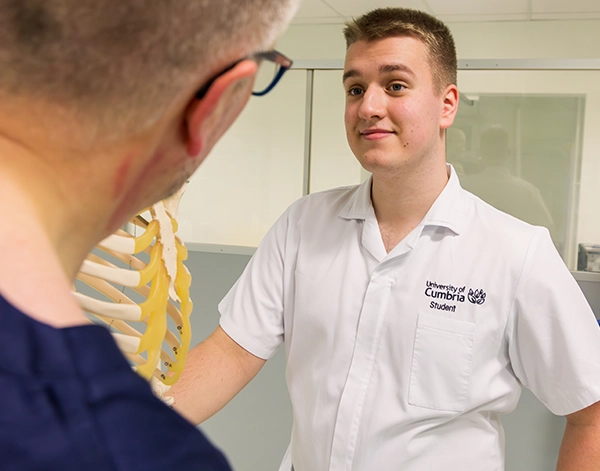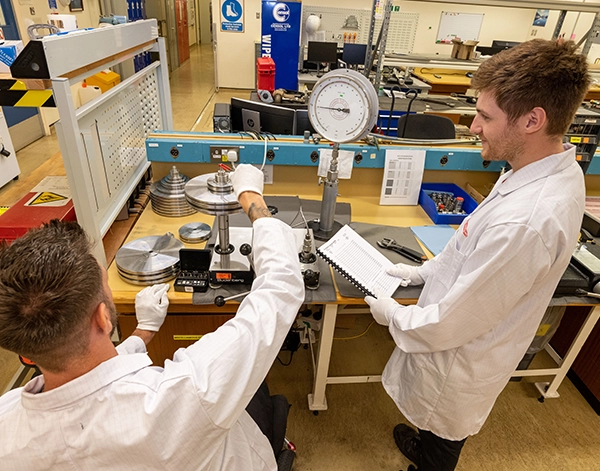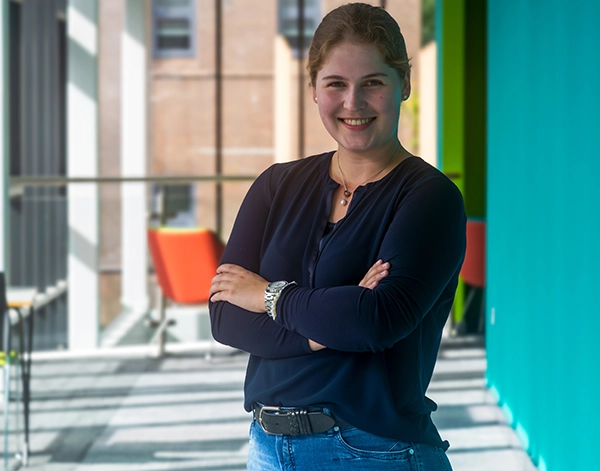Teacher Degree Apprenticeship Primary Education (3-11)
The Teacher Degree Apprenticeship is designed to enable your apprentices to train and become a qualified teacher for primary education (3-11), working in schools in England sponsored through the apprenticeship route.
By studying for this award with the University of Cumbria, your apprentice will be joining an institution that can trace its roots in teacher education back to 1891 at Charlotte Mason’s House of Education at Ambleside and to 1964 at St Martin’s College at Lancaster. We are proud of this heritage, and proud that we continue to make a significant contribution to teacher education.
This programme will help apprentices to build their theoretical understanding of the complexity of teaching and learning, whilst at the same time helping them to develop their practical professional skills in classroom settings. There will be a significant focus within the course that is devoted to the interplay between theory and practice to help your apprentice become the best teacher they can be.

Apprentices will be learning continuously on their apprenticeship and will have three formal placements where they will enact the learning that they have done up to that point. Apprentices will be supported by a mentor on placement who will help them to set targets that build on their prior learning in relation to their performance on placement.
Modules use formative and summative assessment so that apprentices’ progress can be evaluated in a structured and constructive way. Formative assessments are designed so that feedback can be provided prior to the submission of the final, summative assessment.
When apprentices are on placement, they will be assessed against Staged Expectations. These are milestones in their learning which relate to everything they have learned prior to the placement starting. On their final placement, apprentices will be assessed against the Teachers’ Standards. Apprentices can expect to be involved in this process with their mentor, who will help them to set developmental targets on a weekly basis during their placements. This will help apprentices to build their ability to self-assess and be an active agent in their professional development. A teacher is expected to demonstrate consistently high standards of personal and professional conduct throughout their career.
- To be able to develop as a pivotal professional in children and young people’s lives who inspires and enables all to learn and progress in your specialist phase and/or subject.
- To be able to develop a well-defined teacher identity that enables making evidence-informed decisions in the best interest of children and young people, working as part of a professional team and autonomously.
- To be able to take responsibility for independent learning, building the skills, knowledge and understanding required to be an effective teacher rooted in a commitment to professional development and scholarly study.
- To be able to grow with flexibility and resilience, adapting to the needs of children and young people as well as the tensions of the profession.
- To be able to effectively challenge and dismantle disadvantage, empowering children, and young people through the teaching of specialist phase and/or subject.
- 112 UCAS Tariff Points.
- Enhanced criminal background check (Disclosure and Barring Service) and Fitness to train via a medical are required.
- GCSEs: GCSE English Language or Literature, Maths and Science at C/4 or above
- A-levels: BBC
- T-levels: All subjects accepted, however we recommend T level Education and Childcare for entry to this course.
- Access to HE: 21 Credits at Distinction & 24 at Merit m (or any other combination to 112 UCAS Tariff Points).
- CACHE Technical Level 3 and Level 3 Extended Diploma: B
- OCR Cambridge Technical & Edexcel/Pearson BTEC Level 3 (National) Extended Diploma: DMM
- Scottish Highers: BBBB
- Other experience: Teaching Assistant Apprenticeship (Level 3): Pass NVQ3 (pre-2014): Pass



